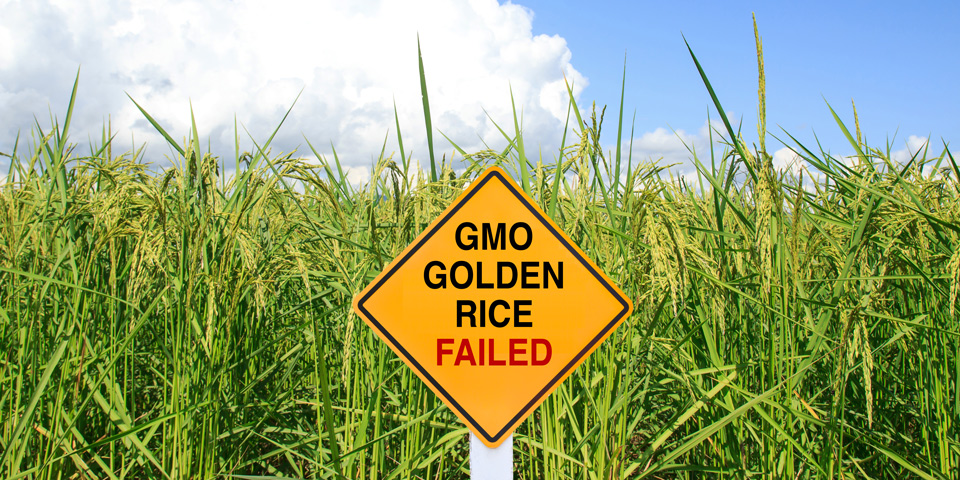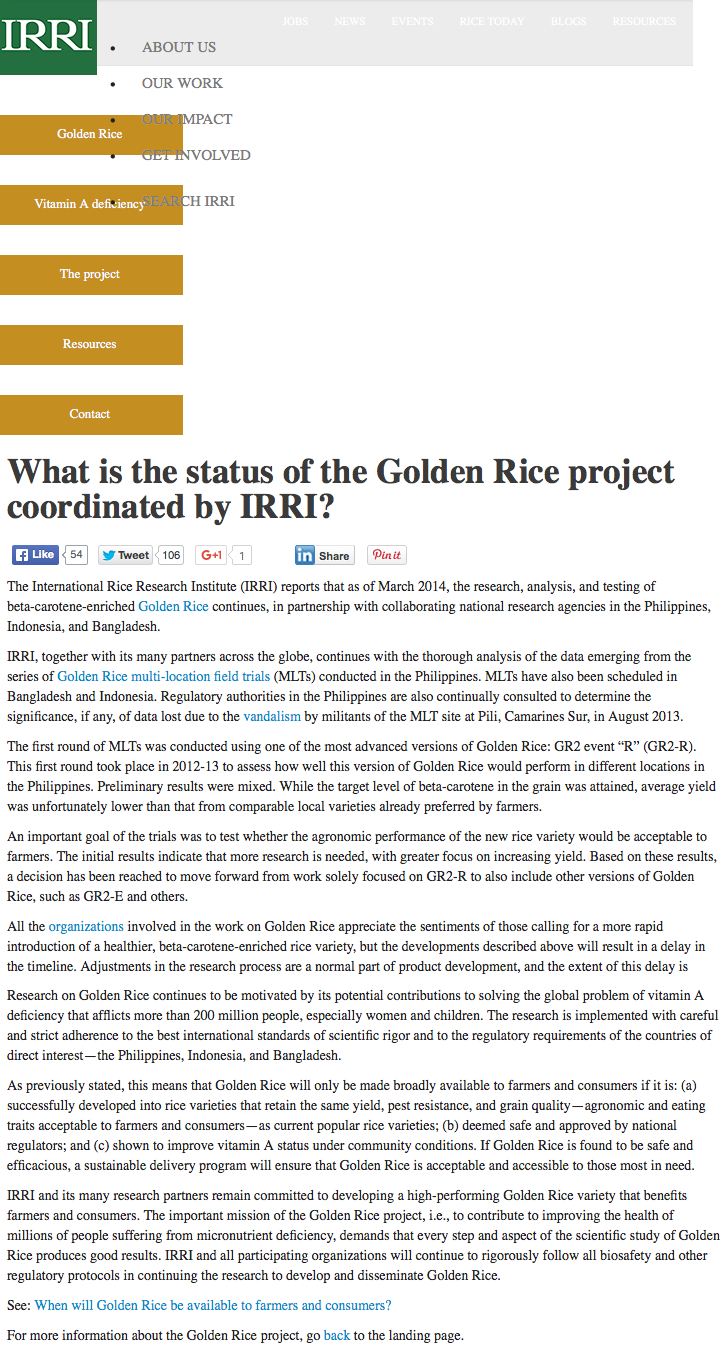
History rewritten to airbrush out low yields
In March 2014 the International Rice Research Institute (IRRI) in the Philippines, the body that is rolling out GMO beta-carotene-enriched golden rice, published on its website a statement on the results of field trials on the crop. The IRRI said:
“Preliminary results were mixed. While the target level of beta-carotene in the grain was attained, average yield was unfortunately lower than that from comparable local varieties already preferred by farmers.
“An important goal of the trials was to test whether the agronomic performance of the new rice variety would be acceptable to farmers. The initial results indicate that more research is needed, with greater focus on increasing yield.”
The statement was published at this URL:
http://irri.org/golden-rice/faqs/what-is-the-status-of-the-golden-rice-project-coordinated-by-irri
We have quoted the IRRI statement extensively in reply to GMO proponents like Patrick Moore, who falsely claim that GM golden rice is already available and only selfish opposition by environmental groups is preventing it saving lives in developing countries.
Prof Glenn Stone, an expert on GM golden rice, has praised IRRI for its clarity and transparency over the R&D problems with the crop.
Previously, we would have agreed. But imagine our surprise when we clicked on the URL for the IRRI statement and found that it had been changed without explanation.
IRRI had rewritten the statement to remove the suggestion of GM golden rice’s failure. The wording had been changed to:
“Results of the first round of multi-location trials of Golden Rice showed that beta carotene was produced at consistently high levels in the grain, and that grain quality was comparable to the conventional variety. However, yields of candidate lines were not consistent across locations and seasons…”
So IRRI has shifted from saying that the average yield of GM golden rice was “unfortunately lower” than non-GM varieties to saying that yields were “not consistent”.
That would have been acceptable if the new statement was simply being updated to reflect new data. But that doesn’t appear to be the case. Instead IRRI is misleading visitors to its website by suggesting that this is the original statement it published in March 2014. On another page of its website, IRRI links to the statement with this note:
"In March 2014, IRRI provided an update on the status of the Golden Rice project, including a research and development delay that is currently being assessed.”
But you click on the link provided in the note, what you see is the new “edited” version.
The new version also rewrites statements in the old version, which had said that GM golden rice has not yet been “deemed safe and approved by national regulators” or “shown to improve vitamin A status” in vitamin A-deficient people.
These have been changed to the rather more upbeat “biosafety data are being generated as required by regulatory agencies. Golden Rice will only be made available broadly to farmers and consumers if it is successfully developed into rice varieties suitable for Asia, approved by national regulators, and shown to improve vitamin A status in community conditions.”
In the interests of the clarity and transparency that we previously believed was embodied in IRRI, we reproduce below an image of IRRI’s original statement taken from the version of its website captured in the Web Archive on 8 February 2015.
(Report: Claire Robinson)











